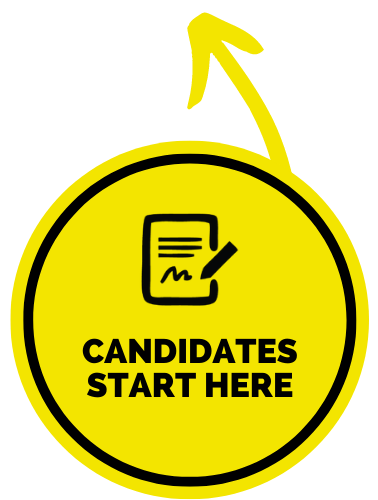
Everyone gets nervous before an interview, no matter how many times you go for them. Even the interviewer gets nervous before an interview sometimes. Here are some easy ways to keep calm and ace that interview like you deserve to.
DO:
Arrive prepared for your interview
Double- and triple-check your time, date, and venue. If it’s a remote interview, make sure that your camera, computer, and internet connection are all ready to go. Research your interviewer or interview panel, and make sure that you know their names and how to pronounce them properly. Prepare your answers to some commonly asked interview questions and ask someone to help you practice off-the-cuff questions too. Have extra copies of your CV on hand in case they’re needed. The more you prepare ahead of time, the more confident you’ll be in the interview.
Arrive early for your interview
On time is too late. You want to aim to be there at least 15-20 minutes before the meeting starts. Not only will you ensure that you’re not late for the interview, but it also makes a good impression if you’re ahead of schedule.
Watch your body language
Greet your interviewer with a smile and a handshake. Make sure that you make eye contact, but not so much that you end up staring. Sit up straight in a way that shows that you are focused and interested in what the interviewer has to say.
Follow the interviewer’s lead
Don’t just dive straight into business. The interviewer wants to get to know you a bit as a person and build some rapport. Don’t be surprised if there’s a bit of small talk before the interview properly gets going. It’s all part of the process.
Send a thank you after your interview
Your interview isn’t over until you send a thank you email to your interviewer. This can be directly to the interviewer or via your recruiter, but it’s important that you thank the interviewer for taking the time to see you. This A) shows the interviewer that you value their time and are serious about the role, and B) keeps your name at the top of the interviewer’s mind.
DON’T
Be self-conscious about your nerves
Interviews are intimidating – it’s a well-known fact. Your interviewer knows this too and will probably expect some level of nerves. Just breathe, take your time, and try to think through what you want to say before you say it.
Exaggerate or embellish in your interview
Sure, you want to make sure that you’re marketing your skills and accomplishments as best you can but lying isn’t the way to do that. Make sure that whatever you say is honest and accurate. The truth has a way of getting out eventually, so avoid over-selling your skills and experience. Besides, the interviewer wants to get to know YOU and figure out why YOU are the perfect person for the job. Rattling off achievements that aren’t yours will only backfire later.
Say “I don’t know” to interview questions
This is why preparing is so important. There’s really no excuse not to have an answer for the most common questions asked. But if you’re asked an unexpected question that really stumps you, it’s okay to admit that. Tell the interviewer that you’re going with your gut answer, but that you’ll still be thinking about the question after the interview. This way, you show that you can think on your feet, but are also willing to explore new concepts.
Be the one to bring up salary and benefits
The interviewer will eventually guide the conversation there because it’s an important topic of discussion but bringing it up yourself can seem rude and forward. Wait until the interviewer brings it into the conversation and be honest and reasonable about your salary and benefit needs.
Forget to ask your own questions
As much as the company is interviewing you to see if you’re the right fit for the role, you’re interviewing the company to see if it’s the right fit for you. Come prepared with good, insightful questions to ask your interviewer about the company.
Expect an offer right away
Interviews are a process. There are normally one or two more interviews after the first one. Be prepared for the possibility of being asked to attend more interviews and make sure that you are easy to contact while you are waiting to hear.
Forget to be yourself
The point of the interview is to get to know you, so make sure that you’re being as authentic and honest as you can possibly be. You have something unique to offer that no other candidate can, so make sure that comes across in your demeanour and your answers.
You’ve got this!
For more job search advice, check out our other articles:
3 quick job seeking tips you can do in your lunchbreak
Get Hired with these 7 Marketable Skills










